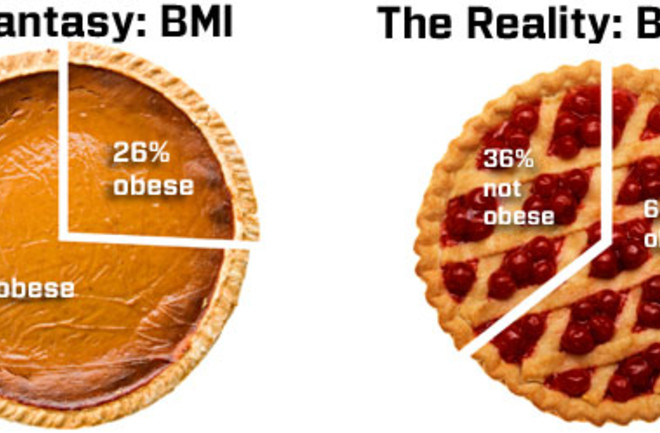Obesity is a major public health threat, yet doctors assess it using a 200-year-old comparison of weight and height called the Body Mass Index, or BMI. In April, researchers Nirav Shah and Eric Braverman revealed BMI’s flaws. They studied 1,400 people and compared their BMI with a definitive measure: body fat percentage, determined by X-ray scans. BMI correctly predicted whether a person was obese (25 percent fat for men, 30 percent for women) just three-fifths of the time, and it was particularly inaccurate for women. The researchers propose changing the BMI obesity threshold (now at 30) to 24 for women, 28 for men. They also advise people to consider a body fat scan and a blood test for the hunger-suppressing hormone leptin.
The Consequences
There are 116 million women in the United States.
• According to BMI guidelines, 41.3 million (35.5%) are obese.
• Based on a new study, at least 74.5 million (64.1%) should be deemed obese.

